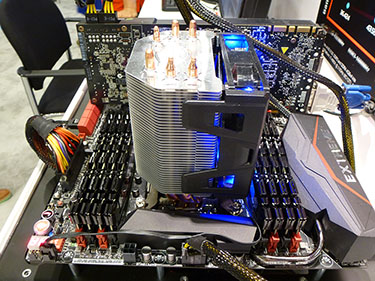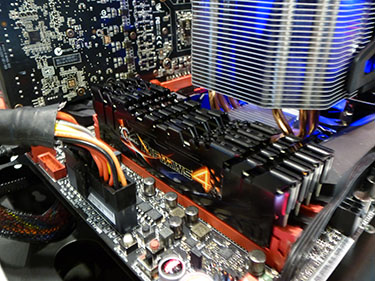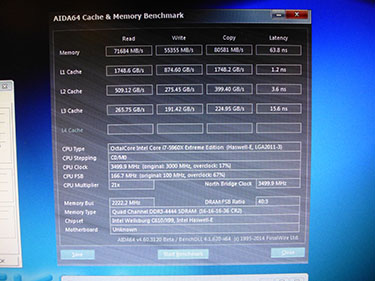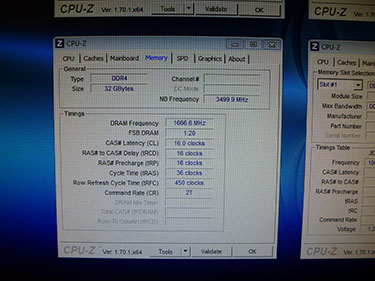Pushing the boundaries of what's possible with nascent DDR4 memory introduced in concert with the Intel Core i7-5960X processor last month, memory specialists G.Skill showcased an 8-DIMM, 32GB kit operating at a native 3,333MHz at the Intel Developer Forum today.
Cranking up the speed from the reviewed Ripjaws 4 3,000MHz memory, G.Skill claims it is the only vendor to offer a 32GB capacity with class-leading speeds, following on from a 16GB (4x4GB) quad-channel kit announced earlier.
The normal recipe for increasing speeds is to also increase latencies. G.Skill, however, keeps timings at 16-16-16-36, and the 32GB set has been validated on the Asus Rampage V Extreme X99 motherboard. Under the new heatspreaders is specially screened ICs from Hynix.
Benchmarking at over 70GB/s on the popular AIDA benchmark and therefore comfortably ahead of the results we achieved on the 3,000MHz set, super-fast DDR4 is a supremely niche product, reserved for those who want the very last drop of performance from the X99 platform.
And such performance doesn't come cheap. A combination of DDR4 scarcity and bleeding-edge speeds means G.Skill estimates the 32GB kit will cost in the region of $1,400 when released in limited quantities later on this month.

















